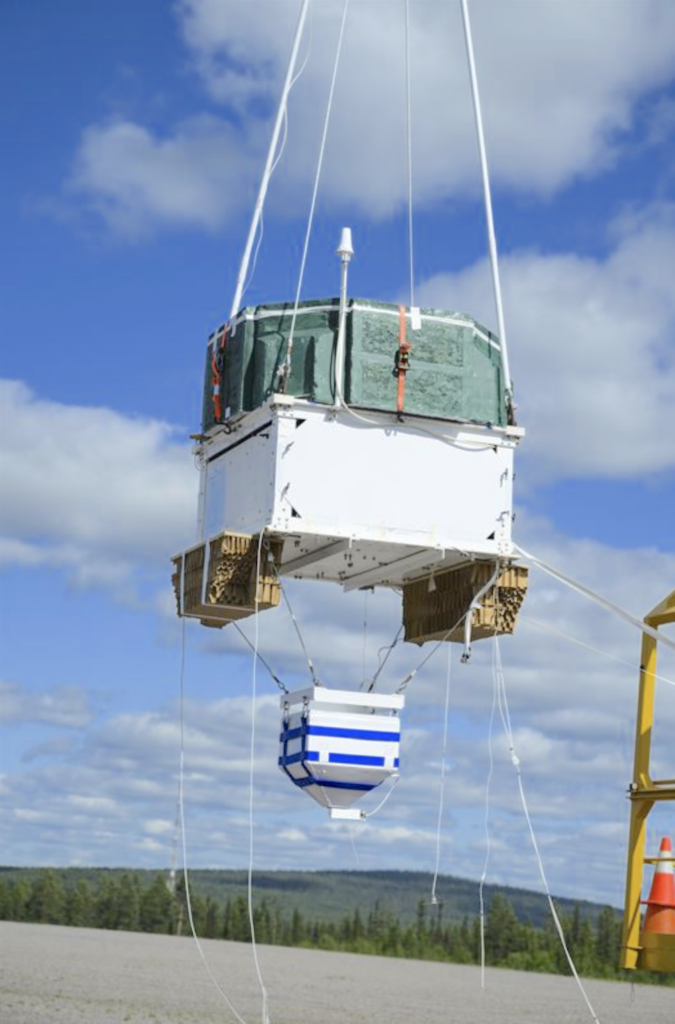
Larger means higher – and on July 17 at 4.39 pm local time, the largest stratospheric balloon ever to be launched from Esrange Space Center rose from the ground in northern Sweden. On its way to its destination in North America, it will study X-rays in the polar atmosphere.
Behind BOOMS, as the payload is called, stands NASA. The name is short for Balloon Observation of Microburst Scales. It is a high-resolution imager of X-rays from energetic electron microbursts that occur high in the atmosphere closest to the poles. The record-sized balloon that carries the research experiment is 1.7 million cubic meter (60 million cubic feet, MCF) large. That extra size will take the balloon to new heights.
The flight is a test to qualify the 60 MCF balloon for higher altitudes than 150,000 feet, equivalent to an altitude of about 45.7 kilometers. This is higher than NASA’s previous stratospheric balloons have ever flown, and at that height you are above 99 percent of the Earth’s atmosphere, which is beneficial for studying various radiation that would otherwise be blocked by it.

“The 60MCF balloon is of high importance to the scientific community. Some of the instruments that are being flown are so sensitive to interference from the atmosphere that even flying a little bit higher than our typical altitude of 120,000-130,000 feet can bring a lot of scientific reward. Qualification of this balloon will allow NASA to continue to stretch the boundaries of what we provide to the scientific community,” says Andrew Hamilton, Director of NASA’s Balloon Program Office.
The on-board experiment aims to take the first high-resolution images of X-ray radiation from so-called electron microbursts. This precipitation only occurs in certain places in the Earth’s magnetic field, why the launching site in northern Sweden is especially important.
“The fact that NASA has chosen to carry out such an important test flight at Esrange is shows that our close collaboration that has been going on for several decades still continues. Esrange is a unique asset for international research at the very highest level,” says Lennart Poromaa, SSC President Science Services and site manager at Esrange Space Center.
For SSC, BOOMS is the largest balloon ever launched. At its cruising altitude, the ambient air pressure outside the balloon is so low that the gas inside the balloon expands to its full size. By then, it measures approximately three times the volume of Avicii arena (formerly known as the Stockholm Globe Arena). Few places in the world can facilitate launches of balloons of this size — and Esrange is one of them.
“During the early summer and up until now, we have launched seven giant balloons from Esrange, and we have had both the French space agency CNES and the American equivalent NASA on site at the same time. It is something truly unique as we now have reached the crescendo of our balloon bonanza with the launch of the largest balloon ever. This shows that we are among the best in the world at what we do,” says Lennart Poromaa.
